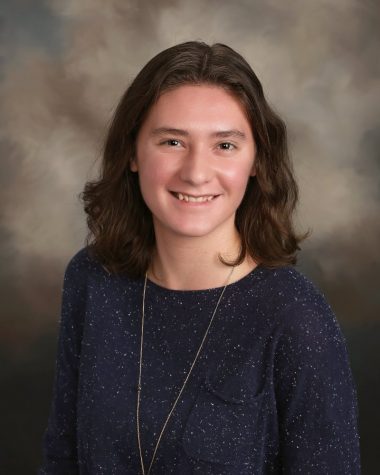‘The Hate U Give’ highlights police brutality through a nuanced lens
October 30, 2018
*Spoilers below
Based off a book of the same title that was published in 2017, The Hate U Give is a story that stemmed from an increasingly heated relationship between police officers and people of color––specifically black men. It’s an issue that, unfortunately, has yet to be resolved in our country today.
I read this book when it came out over a year and a half ago, and appreciated the balance of emotion and nuance that author Angie Thomas brought to this timely story. The movie adaptation didn’t disappoint either.
The Hate U Give centers on a black girl named Starr Carter who lives in a poor black neighborhood and goes to school in a rich white one. She struggles with different versions of her identity in each of those places, wanting to be herself in her neighborhood, but acutely aware that she must change who she is when she goes to school in order to be accepted. Early in the film, she witnesses an old friend of hers, Khalil Harris, get shot and killed by a police officer after they’d been pulled over for a minor driving mistake.
The story becomes all too familiar from there, as Starr watches Khalil’s character endure suspicion and scrutiny almost immediately, while the cop who shot him is rarely questioned about his own deadly actions.
From the start, the plight of poor neighborhoods like Starr’s is brought to light and examined. Starr’s dad, Maverick, used to deal drugs, until he did time in prison for a crime he didn’t commit so he could get out of the business. Maverick explains to Starr the allure of dealing, when money is desperately needed simply to pay bills and put food on the table, and the town’s minimum-wage jobs can’t make ends meet. Most get sucked into the business not because they’re lazy or greedy, but because they see no other way to provide for their loved ones, falling prey to a vicious cycle. Maverick sheds light on this struggle to inform the audience and give them an opportunity to understand and sympathize when they might not have before.
What this film did best, though, was open a nuanced conversation about police brutality––a timely, heated issue in this country. Varying points of view on what happened to Khalil were highlighted, giving the story a chance to be told from many sides.
Starr’s friend Hailey––who is rich and white––has a difficult time understanding why the cop did anything wrong. Hailey feels that since Khalil was a drug dealer––even though Starr explained that he dealed to pay for his grandmother’s chemo treatment, among numerous other things––he was probably going to get killed at some point anyways. Even with these types of comments, Hailey’s position is still depicted as complex. Hailey’s comments are not necessarily a symptom of racism, but come from a narrow and uninformed position. Hailey has a lot to learn about being poor and black; in the end, she isn’t willing to admit that.
Hailey’s character is contrasted with Starr’s boyfriend, Chris––also rich and white. They’ve been together for six months in the movie, and Chris is increasingly bothered by the fact that Starr won’t let him meet her parents or go over to her house. As the controversy around Khalil’s death gets more intense, Starr realizes she can’t keep that other version of herself from Chris forever. Chris, although a bit naive (realistically so), is there for Starr in any way he can be, even when he accompanies her to a protest that quickly devolves into a riot when news breaks that the cop who killed Khalil would not be indicted. Chris, like Hailey, has a lot to learn about being poor and black as well; but unlike Hailey, he recognizes the gap in his knowledge and chooses to do something to change that.
The character that had the most nuanced perspective in the story is Starr’s uncle, Carlos. As a black man who is also a cop, he symbolizes the intersection amidst the discussion around police brutality. Carlos tells Starr how the cop who shot Khalil may not be entirely to blame. There’s a lot a police officer thinks about during situations like that one, a lot they have to decide in a matter of moments––insinuating that if he had been that cop, he may have shot Khalil, too. After all, it had looked like Khalil was going for a gun (it was a hairbrush). But when Starr asks Carlos if he would have shot a white man doing the same thing, he admits that he wouldn’t have.
Starr’s conversation with her uncle emphasized how this is more than a race issue, it’s also an issue of how cops are trained; what they’re told to see as inherently dangerous, and how that education affects more than just white police officers. Seeing black men as an inherent threat––especially in poor neighborhoods––is in some ways ingrained in the system.
The movie adaptation of the The Hate U Give stays true to the message of the book, and adds a level of complexity to the conversation about police brutality that is greatly needed today.
In the end, Khalil Harris didn’t get justice because The Hate U Give isn’t about a perfect world, it’s about the real one. And it ultimately asks us, How much hate are we going to give each other before the cycle is finally broken?



